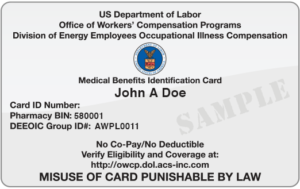What Mental Illness in the Elderly Entails
Sadly, signs of mental illness in the elderly are often overlooked. As a result, mental health issues are chronically underdiagnosed. One of the major challenges that senior citizens face is that mental illnesses are often poorly defined.
Many people do not have a strong grasp on what qualifies as a mental illness. This is unfortunate because it makes it more challenging for an elderly person who is suffering to get access to the care, attention, and healthcare services that they desperately need, which may include EEOICPA and RECA benefits.
What Is a Mental Illness?
To fully understand mental diseases and psychological disorders, you have to understand mental health more broadly. A healthy mind is one that allows for effective functioning in activities and relationships — including the relationship that a person has with their own mind. A lapse in effective functioning is a sign of a mental health issue. Similar to physical issues, mental disorders vary widely. Some are incredibly severe, while others only require mild intervention.
Notably, the American Psychiatric Association defines mental illness as a medical condition that involves “changes in emotion, thinking or behavior”. In many cases, a person suffering from a mental illness will experience changes in all three. In addition, it is important to recognize that mental illnesses are frequently associated with emotional distress and/or problems in day-to-day functioning.
Why Is Mental Illness Threatening the Elderly?
Mental health issues can affect anybody. It does not matter your age, your race, your gender, your economic background, or even your personality. That being said, mental health issues can be especially threatening for elderly people. There are several different reasons for this. First, elderly people face additional stigmas and stereotypes. Some people incorrectly believe that being a little “off” or “down” is an inevitable part of the aging process. It is not. Depression and other mental health issues affect the elderly, and they are not a normal part of aging. Treatment is required. Beyond that, mental health issues are often compounded by other issues. Mental disorders can have physical effects and they can lead to further social isolation.
Elderly Mental Illness Statistics
Many people dramatically underestimate the prevalence of mental illness. According to data provided by the World Health Organization (WHO), approximately one in five senior citizens globally are currently suffering from some type of mental illness or psychological disorder. The data for the United States show similar results. The Centers for Disease Control and Prevention (CDC) reports that the most common mental health issues for senior citizens are:
- Generalized anxiety;
- Cognitive impairment; and
- Mood disorders, including depression and bipolar disorder.
Tragically, mental diseases can be deadly. The suicide rate for people over the age of 85 is more than four times higher than the rate for all other age groups. Mental health problems prevent many senior citizens from enjoying the highest possible quality of life. This is a true tragedy because, in many cases, there are resources and treatment options available that could help an elderly person who is struggling with a mental health disorder.
Who We Serve
Do you have this card?

If you already have this card, then you are already approved to receive no-cost medical benefits! Call us to get started today.
In order to be eligible for EEOICPA/RECA benefits, an individual must have been employed at a covered Department of Energy facility, an approved atomic weapons facility, or at a permitted beryllium vendor. An individual must also have one of the covered conditions as a result of exposure to radiation, beryllium, or silica while employed at an accepted facility. In addition, uranium miners, millers, and ore transporters are eligible for benefits if they develop an illness as a result of exposure to toxic substances (such as radiation, chemicals, solvents, acids, and metals) and worked at a facility covered under RECA. Eligibility requirements vary by location and condition.